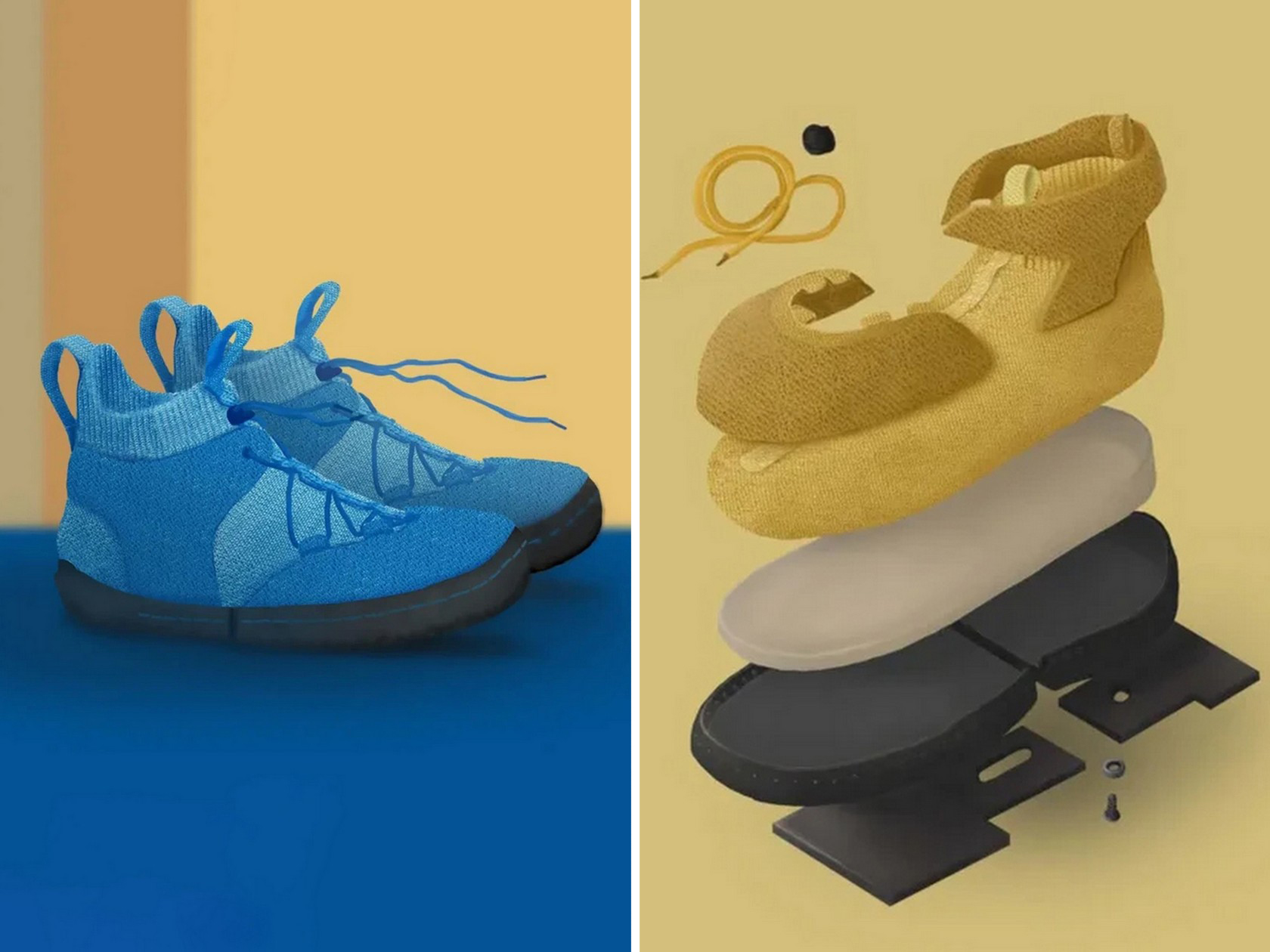
Every parent knows the struggle of dealing with outgrown children’s shoes. One minute they fit perfectly, and the next, they’re too small, adding to the pile of barely-used footwear. But what if there was a shoe that could adapt as your child’s feet grew, extending its lifespan and reducing waste? This innovative solution by Moa Lövinder is a groundbreaking prototype designed to grow with children aged 2-3 years, offering a sustainable answer to a common problem.
Designer: Moa Lövinder (Umeå Institute of Design)
The concept behind these adaptable shoes is simple yet revolutionary. Using principles of circular design and economy, Lövinder has created a shoe that adjusts to three different sizes, ensuring it remains useful for much longer than traditional footwear. This design not only increases the shoes’ utility but also addresses the rapid consumption and waste typical of children’s products.
In our pursuit of a sustainable future, reducing consumption and emissions is paramount. However, discussions often overlook the significant environmental impact of children’s items. Kids grow quickly, and their needs drive frequent consumption, creating a unique challenge. Lövinder’s project directly tackles this issue by offering a sustainable alternative that reduces the overall production of children’s shoes and promotes recycling.
The journey to this innovative solution began with thorough research. The designer studied the textile and footwear industries, focusing on their environmental impacts. She also conducted surveys and interviews with parents to understand their experiences with their children’s shoes. The feedback was clear, parents were frustrated with the constant need to discard perfectly good shoes simply because they no longer fit.
With this insight, Lövinder set out to create a new shoe design. She developed physical models using manual techniques and advanced 3D printing, ultimately producing a prototype that can grow with its user. The result? A shoe that extends its usability, significantly reducing the need for new shoes and minimizing waste.
But the innovation doesn’t stop there. Her design includes modular components, making it easy for parents to replace parts or make repairs at home. This feature not only prolongs the shoe’s life but also teaches children the value of maintaining and using what they have; a lesson often missing from second-hand solutions or other circular systems. Additionally, the shoe’s sole is crafted from reused materials, which can be recycled again once it reaches the end of its life.
One of the most significant impacts of this project is its potential to change consumption behavior from a young age. By integrating sustainability into children’s daily lives, the design fosters a mindset of responsible consumption that can extend into adulthood. Her growable shoe prototype represents a major step toward reducing the environmental footprint associated with children’s footwear, offering a practical and impactful solution to a widespread issue.
Moa Lövinder’s innovative shoe design for growing children is more than just a product; it’s a vision for a more sustainable future. By addressing the unique challenges of children’s rapid growth, this project provides a viable alternative that benefits both families and the environment. It’s a small step towards a big change, teaching the next generation the importance of sustainability while offering parents a practical solution to a perennial problem.